A participatory fund for women with disabilities.
The Disability Justice Fund for Women is a fund designed by women with disabilities in Ghana, Uganda and Tanzania, to make sure it meets the real needs of disability justice activists in these countries.
Grants have been given out to grassroots organisations led by women with disabilities – a group that are often overlooked when it comes to funding. The money will be used by grantees in Ghana, Tanzania and Uganda to support their work advocating for justice and equality and supporting the African Disability Protocol – a framework for disability justice in Africa, as well as activities like income generation, making spaces more accessible, and strengthening disability justice movements to work together.
These are the grantees from Uganda.
Shamim – Inclusi Talk.
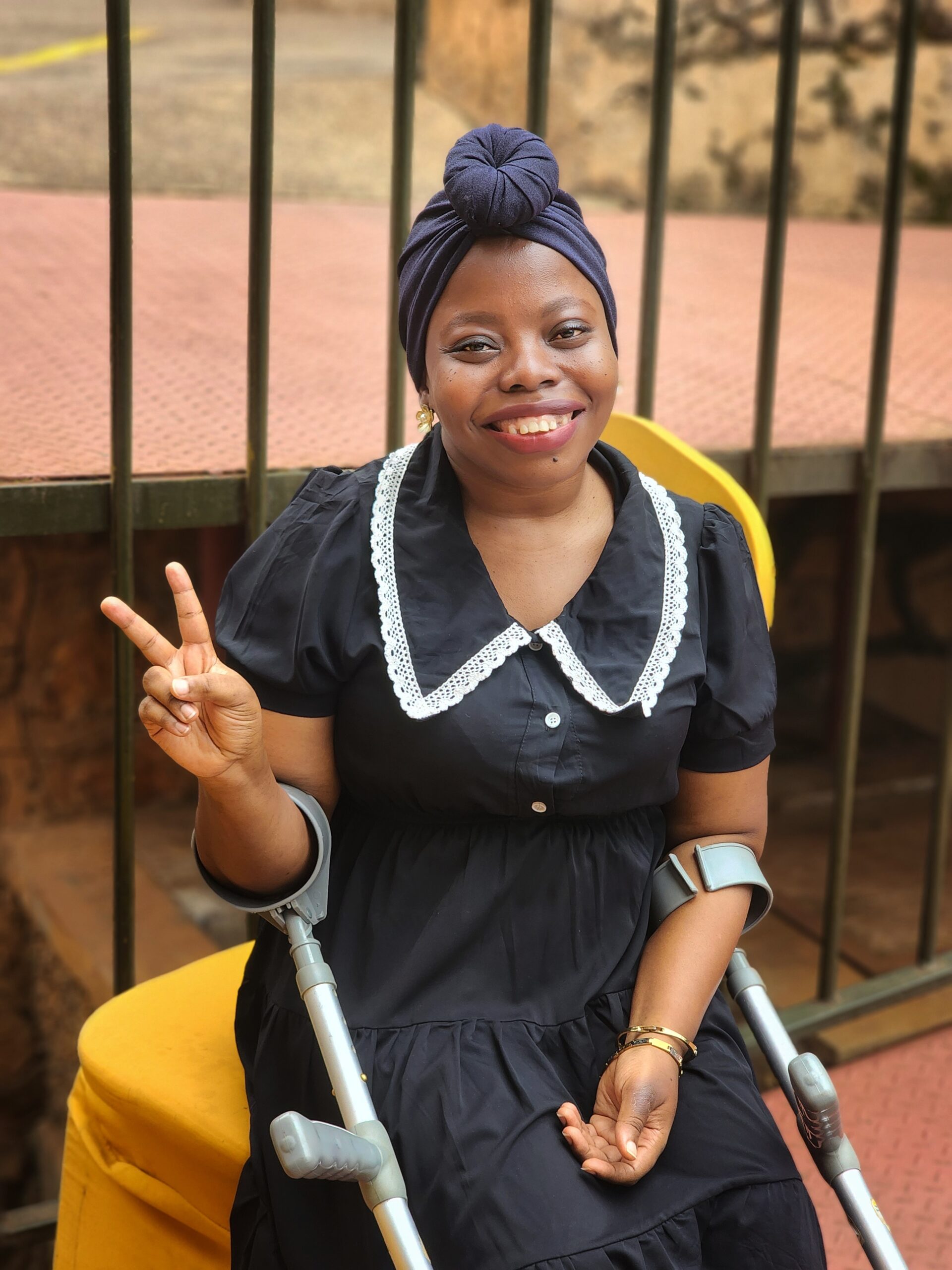
Inclusi Talk is a group of digital activists that runs a digital feminist chat online to inform, educate, and promote the voices of persons with disabilities. Shamim works as the Team Lead of the group.
They want to use the grant to support women and girls with disabilities with digital skills.
“We just celebrated our first birthday as Inclusi Talk in November 2024, and six months in we applied for a grant with no expectations to get it. We were surprised when we were informed that we had been considered for the grant. To us, this felt like a wild dream come true.”
“We were not sure about applying because we thought we don’t have the kind of proof or body of work that grant applications require especially the fact that our work is online in the digital space.”
“The funding gives us an opportunity to extend our work in the digital space. We want to train and support women with disabilities with digital and advocacy skills.”
“We have conducted our first training and I’m glad persons with disabilities were able to adapt to digital tools. We made the training both physical and virtual to give everyone a chance to attend.”
“The application form and the process were very easy to understand. Some granters specifically invite organisations to apply for their grants. This doesn’t give a chance to new and emerging organisations since they could not be known yet as they are doing amazing work. It was different with this grant, because it was very fair and open to everyone.”
“We have implemented our idea as Inclusi Talk for a year now, and we are grateful that despite the short period of our work, the grant makers believed in us and here we are.”
“I like the fact that this funding is targeting women led organisations of persons with disabilities and it’s giving priority to women with disabilities. In some grant applications, it is mentioned that organisations of persons with disabilities are encouraged to apply, but when they do, no one receives feedback. This makes it look like the granters are ticking boxes of inclusivity yet in actual sense it’s not being practiced.”
“Women with disabilities have inadequate participation in the digital space. I want to see more women taking up the digital space to facilitate visibility of the issues they face.”
Sheba – Luwero District Disabled Women’s Association.
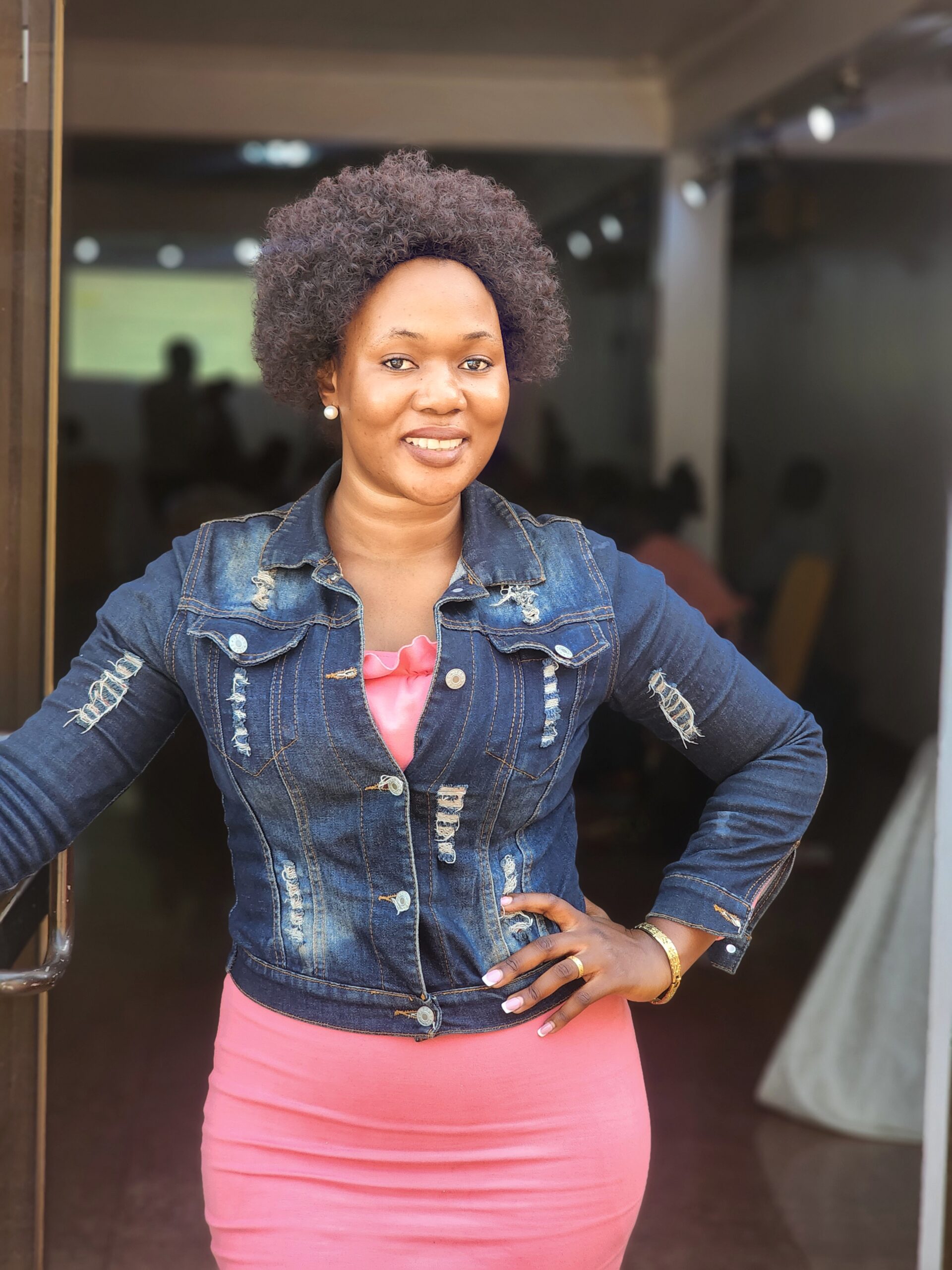
Luwero District Disabled Women’s Association is an organisation of persons with disabilities that provides legal aid and support to women with disabilities. They also support parents of children with disabilities and handle sexual and gender-based violence issues among women with disabilities.
They want to use the grant to create more awareness on legal justice for persons with disabilities.
Sheba works with the organisation as an Accountant. She is very passionate about supporting people with disabilities gain legal justice and ensuring they receive fair treatment.
“When we received the email about getting funding, we were very excited, and it was just celebration at office because we realised we are now going to reach and support many women with disabilities. We have been limited with our reach because of insufficient funds.”
“With the legal help and support we offer, there are a lot of legal domestic cases in court belonging to persons with disabilities that are ignored or not paid attention to. The grant will help us create more awareness in the legal space and advocate for fairness and justice for people with disabilities. We have never gotten any successful cases in court, sometimes lawyers leave our cases pending. People with disabilities are not paid attention to like any other person. In most cases, they don’t even have money to pay the lawyers, so they end up not being helped.”
“An example of a case is one of a deaf girl who was raped but the perpetrator was put in jail for a short while and later he was left free with no justice served.”
“Receiving the grant means a lot to us. It means it’s the start for justice being given to people with disabilities. It means we’ll have the opportunity to teach and educate the community, especially the local leaders and people in the legal space about disability justice.”
“The difference with this grant is that it is unrestricted and unlimited in scope. With some grants we have received, we were limited to a few areas of operation, but we are glad that with this one, we can now support more people with disabilities in more areas. We have a chance to decide where to implement the project and reach more people as well. This gives us a chance because we know the community and where there’s need.”
“In my community, women with disabilities face a lot of challenges. They are not accorded the necessary support they deserve. An example is when they go to banking institutions to secure loans, they are not given because they think they don’t have the ability to pay back.”
“They also face sexual and gender-based violence in their marriages and most of them fear to speak up.”
“The women who give birth to children with disabilities also face a lot of torture because in most cases the men deny these children and they are abandoned.”
“My hope is to see justice for people with disabilities in all spheres. They need and deserve fair treatment in all places especially public places like banks and restaurants.”
Josephine – Empower Her Disability Network Uganda.
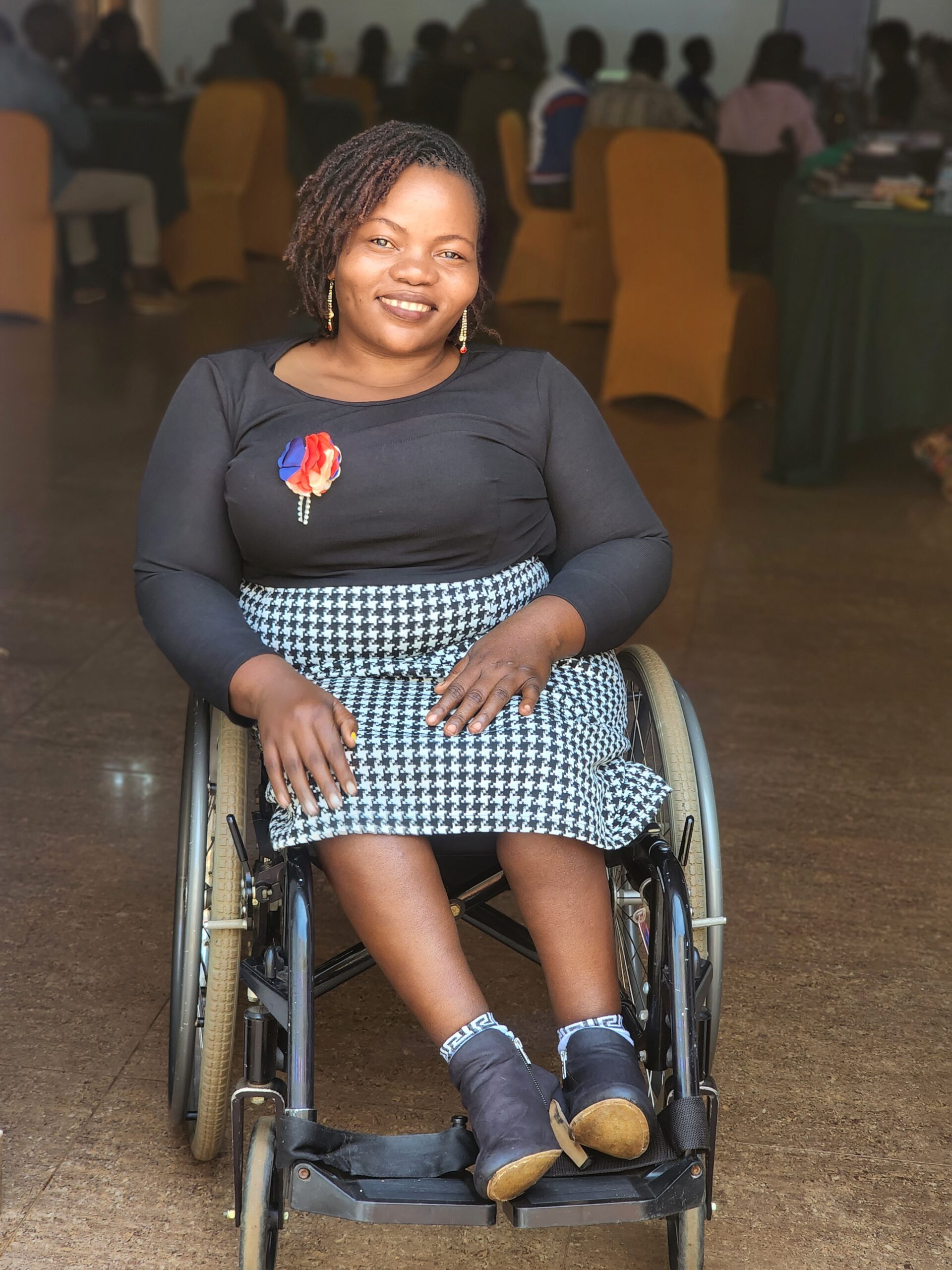
Empower Her Disability Network Uganda runs development programs like an annual leadership and mentorship camp for young girls and women with disabilities.
With the grant, they want to do advocacy and awareness programs and educate persons with disabilities about the African Disability Protocol which is one of the legal frameworks for disability in Africa.
Josephine is the Program Director and Co-Founder of the organisation. She is passionate about disability leadership and mentorship of girls and women with disabilities.
“The leadership camps aim at equipping women with disabilities with advocacy skills. The aim is to produce or have self-empowered advocates who can advocate for disability justice.”
“I am a human rights scholar, advocate, and mentor. I have mentored girls and women with disabilities for over 10 years. I am very passionate about disability justice and women issues.”
“The challenges I went through as a young girl with disability inspired my passion for leadership, mentorship and issues of girls and women with disabilities.”
“At family level, I always came second in decisions made and the rest came first, just because I had a disability. I always had more needs compared to my siblings, so priority was given to them first since it made it easier for my parents.”
“At school I faced challenges like unfriendly peers, piercing my wheelchair tyres, bad hygiene of the toilets which did not favor me as a wheelchair user.”
“Since my childhood, I have been a leader. I strategically took on leadership roles because I believed that if I took on leadership, no one would bully me, and this worked.”
“My mother played a mentorship role towards me right from my childhood. She spoke to me and encouraged me at any given opportunity. This helped me to be where I am today. That’s why I believe that other people with disabilities need support and mentorship as well to boost their potential.”
“Applying for the Women’s Fund and getting it means a lot to me. It has boosted my confidence and self-esteem. I sat down with a group of colleagues, put our ideas on paper and submitted them. The fact that our ideas were considered made us more confident in what we do.”
“In my area of work, I have been implementing already built programs, but this one is like a brainchild to me. It gave me the opportunity to think and decide what programs and activities needed to be implemented and how they will be implemented.”
“ADD’s grant approach of believing in “small” organisations of persons with disabilities that are unregistered motivated me to apply for the grant. We are not a registered organisation yet, but we are doing very impactful work in the community. The application called for unregistered organisations as well, and this diversity has enabled us to access funding to boost the work we are already doing for disability justice.”
“This grant making process is very unique and inclusive. Right from the start, it’s women with disabilities who designed it, and it’s still women with disabilities going to implement. This makes a lot of sense to me because I feel part of the whole process and movement.”
“Letting grantees be a part of the grant making process is the right way to go and I wish and hope that other grant makers learn from this.”
“The Women’s Fund is our first big grant as an organisation. It shows us that we are on track and our impact is being seen and felt.”
“Culture plays a big influence towards girls and women with disabilities in Uganda. In many communities, they do not access any kind of education or information. This has made them less educated and less informed about their rights hence the need for advocacy and mentorship programs in the grassroots.”
Sylvia – Bududa District Hard of Hearing Association.
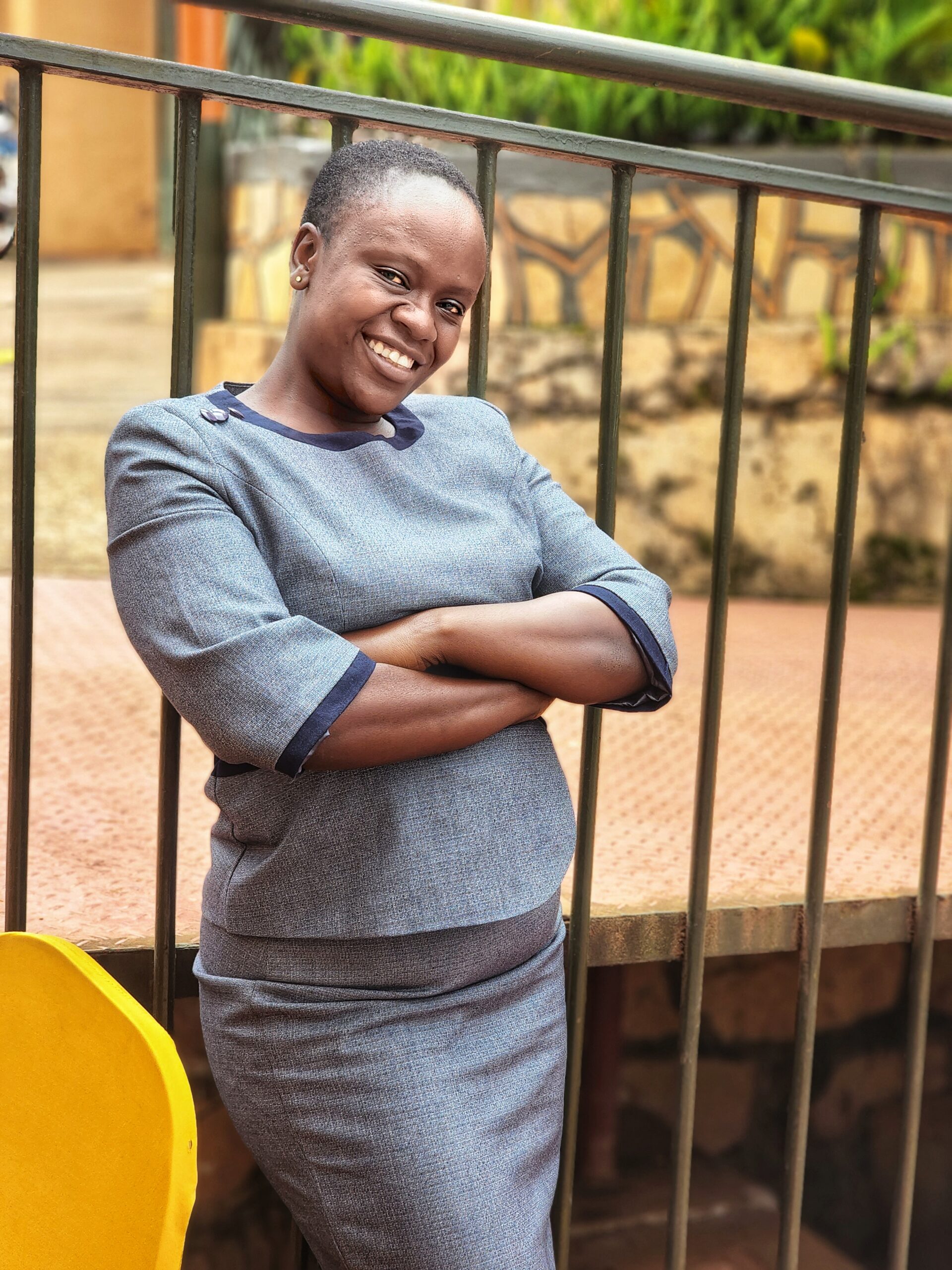
Sylvia is the Project Administrator of Bududa District Hard of Hearing Association, an organisation of persons with disabilities in Eastern Uganda that aims to create awareness about disability especially hard of hearing and promoting disability rights.
“We shall use the grant to create awareness about the African Disability Protocol, and to educate women and girls with disabilities about their rights. A lot of persons with disabilities encounter oppression because they don’t know their rights. We want to support them to amplify their voices for justice and equality. We shall also mobilise them to form groups which will focus on advocacy for disability justice.”
“We named our project under this grant “Uplift the rural voice for Women and Girls With Disabilities.” We want to help amplify the voices of women and girls with disabilities in order to ensure equality and disability justice.”
“Receiving the grant is like a golden opportunity to us. For years, we have not had the opportunity to receive funding. We have always had the aim to do mobilisation and advocacy for disability justice through women groups, but we had failed due to lack of support and funding. We are very grateful for the grant because we had never gotten funders that support our advocacy idea.”
“We did not have complete documentation but despite this, we were still supported through the grant making process to get funding. This is very unique and considerate.”
“In my community, women with disabilities face a challenge of stigmatisation and exclusion from community activities simply because they cannot speak for themselves and that they are women with disabilities. This is what we are striving to change through advocacy and community engagement activities.”
“Through community engagement activities with local leaders, we hope to see that women with disabilities are involved in government programs as well that can uplift their wellbeing.”
“As a disability justice activist, I want to see an environment where all people are treated equally regardless of their disability.”
Mary – Kibenge Federation of Women with Disabilities.
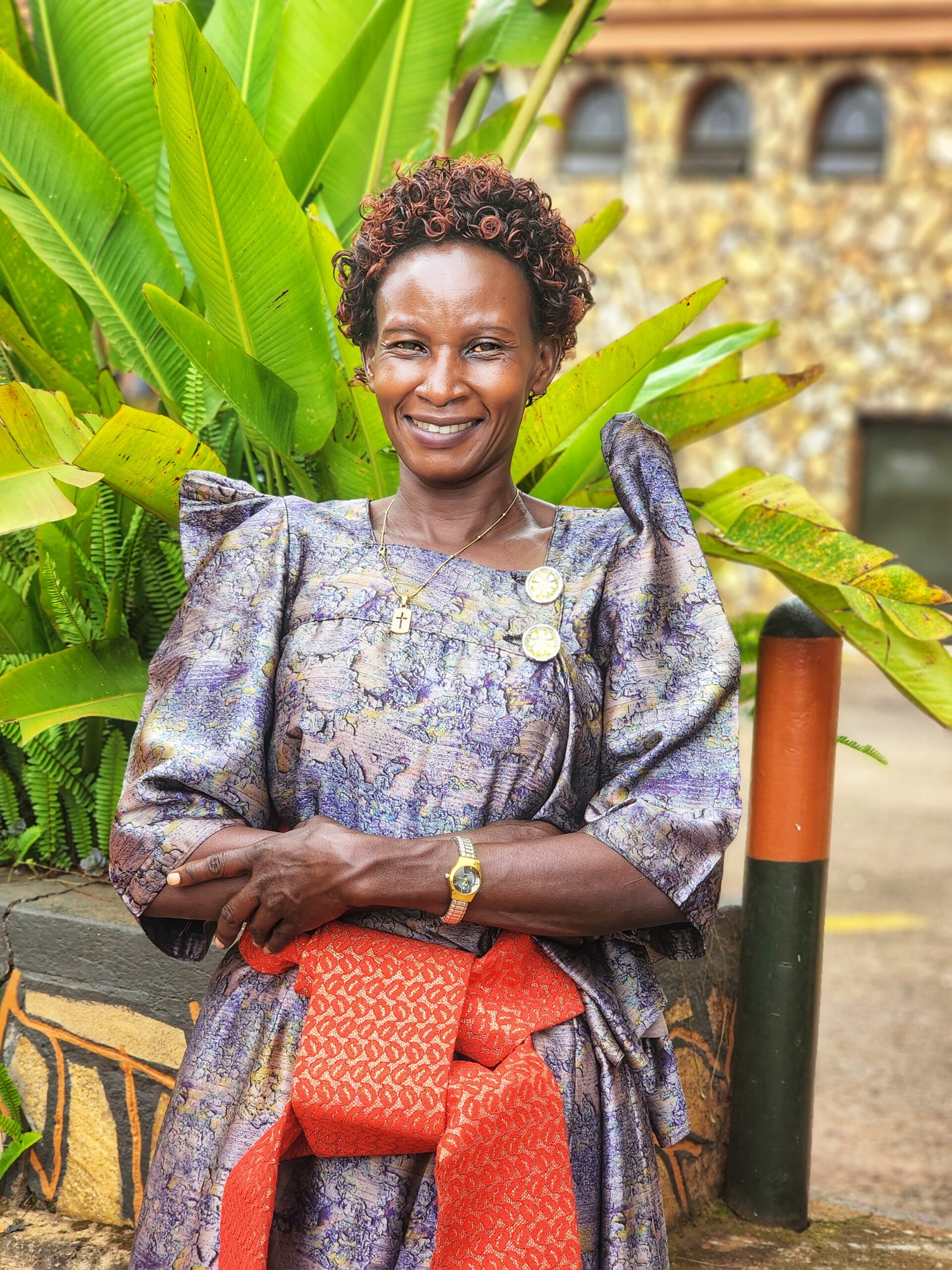
Kibenge Federation of Women with Disabilities is a small local women’s group that came together to support women and girls with disabilities through activities like agriculture, poultry farming to boost their wellbeing.
Mary is the Chairperson of the group, and she said:
“With this grant, we want to support women with disabilities boost the activities they are already involved in like farming for their wellbeing.”
“Previously, we were not very active as an organisation due to lack of funding. Receiving this grant means we shall now be able to reach women and girls with disabilities in the community that need support.
“Our group is very small and not well known like other organisations, so we feel very lucky to receive this grant, since we did not expect it. A lot of funders consider organisations that are well established and popular, so this came as a surprise to us.”
“This is our first ever grant as a group. We are not yet a registered organisation however, ADD supported us through the grant making process to ensure that we receive funding.”
“This approach is the right way to go since it helps with the fact that small organisations doing impactful work in their communities are included and not left out during grant making.”
“There’s a high level of poverty and illiteracy among women with disabilities in my community, mostly because they are left out of community development programs. We want to address this and help women live their full potential.”
Stella – Lyakirema Initiative of Persons with Albinism, Kasese.
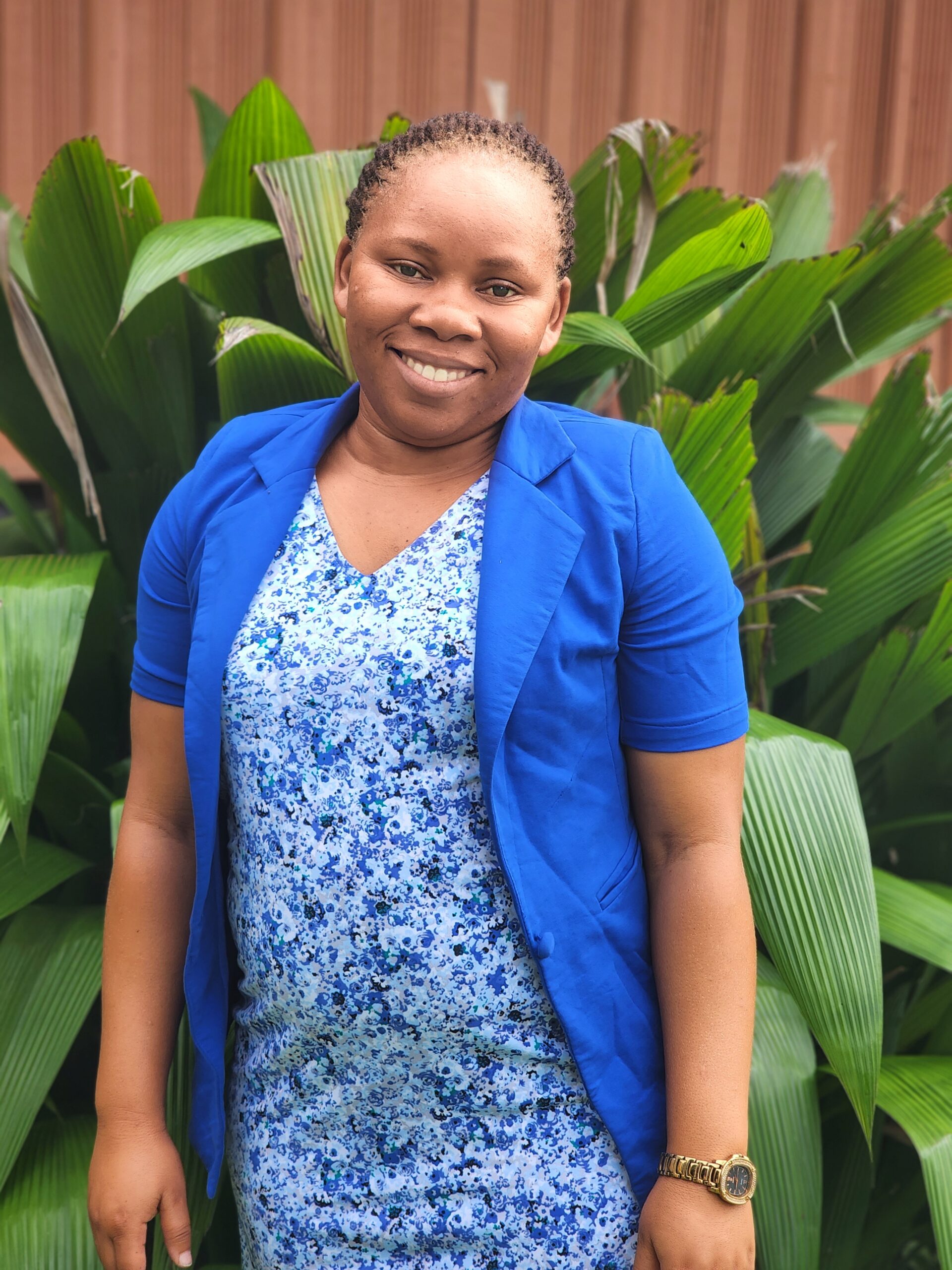
Lyakirema Initiative of Persons with Albinism aims to advocate for the inclusion of persons with albinism in Kasese especially girls and women. They also support with access to skin health to help reduce skin health conditions among persons with Albinism.
Stella is the Project Coordinator of the group.
“With this grant, we hope to reach a bigger number of girls and women with albinism by organising support groups at grassroot level that tackle issues of livelihood and health.”
“We are delighted to receive this funding because this is one of our biggest grants so far. We are happy that it will help us to specifically target challenges related to girls and women with albinism.”
“Some grants come with very strong restrictions on specific activities that should be implemented. The flexibility of this specific grant makes it unique and different because of the fact that we had the opportunity to adjust our activities according to what we thought was suitable and appropriate according to the current context.”
“Women and girls with albinism in Kasese face a challenge of low levels of education and this comes with low self-esteem and low levels of participation in community activities. We shall try to address this through the support groups we are going to form to make sure that they build confidence and are able to advocate for themselves.”
“My hope for the future is to see persons with albinism fully taking lead and are able to speak up for themselves without any kind of stigmatisation.”
Caroline – Kyenjojo Women with Heard of Hearing Association.
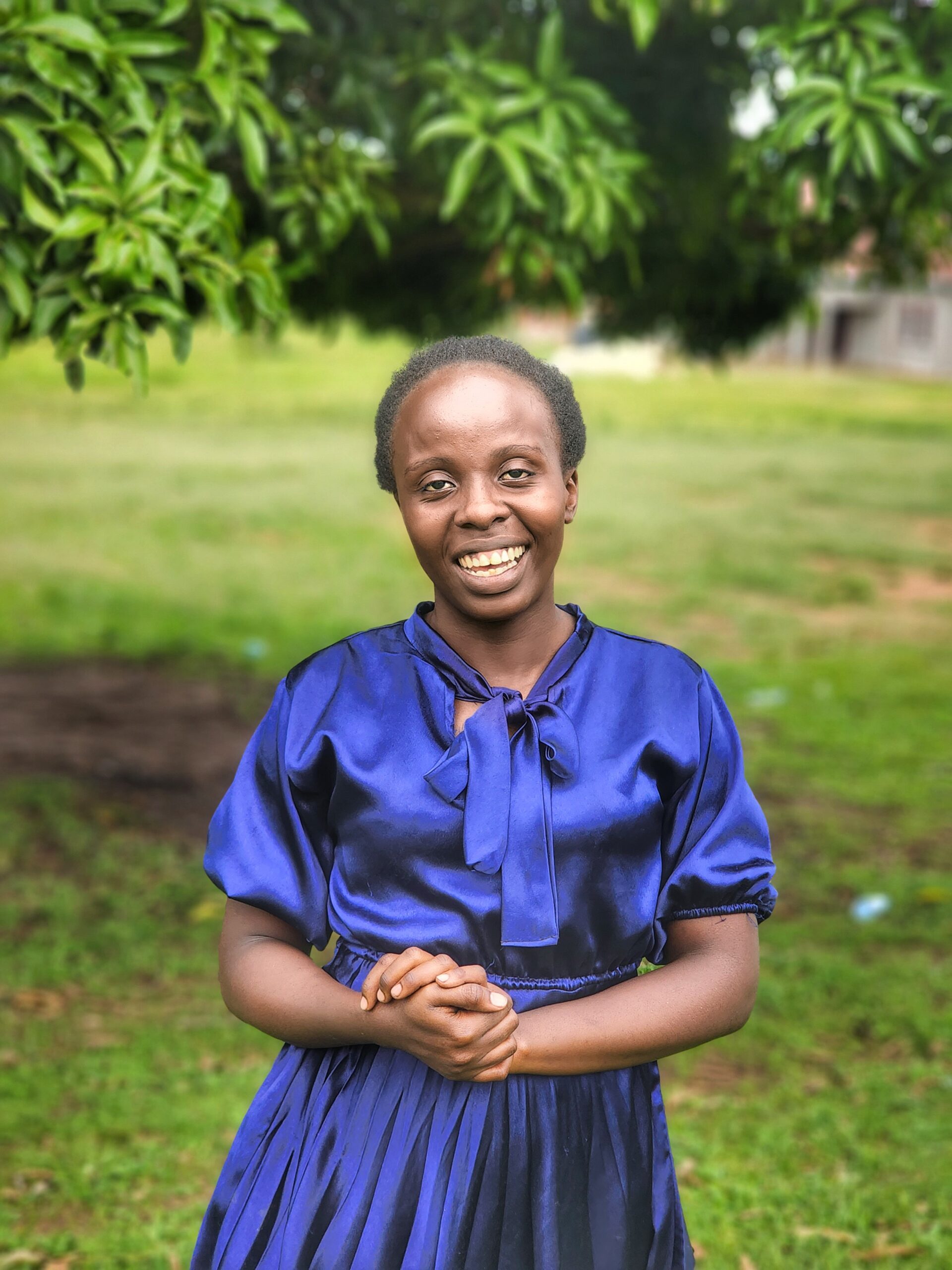
Kyenjojo Women with Heard of Hearing Association is an association of women with hearing impairment in Kyenjojo district, in Western Uganda. They focus on capacity building, advocacy, and creating safe spaces for the hard of hearing community.
Caroline is the Chairperson of the group. She is an advocate for disability justice and is passionate about creating spaces where women with hearing impairment are heard and supported.
“This grant will support our advocacy trainings on disability policies. It will also help us to hold dialogues with community leaders, raise awareness about hearing impairment, and build leadership among women in our association. These are all critical steps in promoting inclusion and justice.”
“Receiving this grant is a huge milestone for us because this is the first time we have received funding. It means someone believes in our potential and the work we are doing. It gives us energy, visibility, and the resources we need to move our advocacy forward.”
“It means we can now implement activities we had only imagined. It also marks the beginning of a new chapter for us where we are no longer on the sidelines but are leading change in our communities. It’s a foundation we can build on.”
“As a first-time grantee, the journey has been a big learning experience, but it helped us grow. ADD was very supportive and walked with us throughout the process, which made us feel capable and included.”
“The grant making process was very inclusive and accessible. We were given the chance to decide what activities to implement based on our understanding of the needs of the hard-of-hearing community. Our voices were respected, and this created a space for meaningful participation, which is rare with most grants I have come across.”
“Women with disabilities, especially those who are hard of hearing, face deep stigma and isolation. We are often excluded from decision-making spaces and lack access to basic services like health and education. The lack of accessible communication, like the use of captioning, creates more barriers”.
“My hope is to see women with disabilities get equal opportunities to lead, participate, and live with dignity. I want to see a future where our contributions are recognized, our rights are protected, and our voices shape the policies that affect us. Disability justice should be about equality and inclusion for all.”
Juliet – Bwera United Women with Disabilities Association.
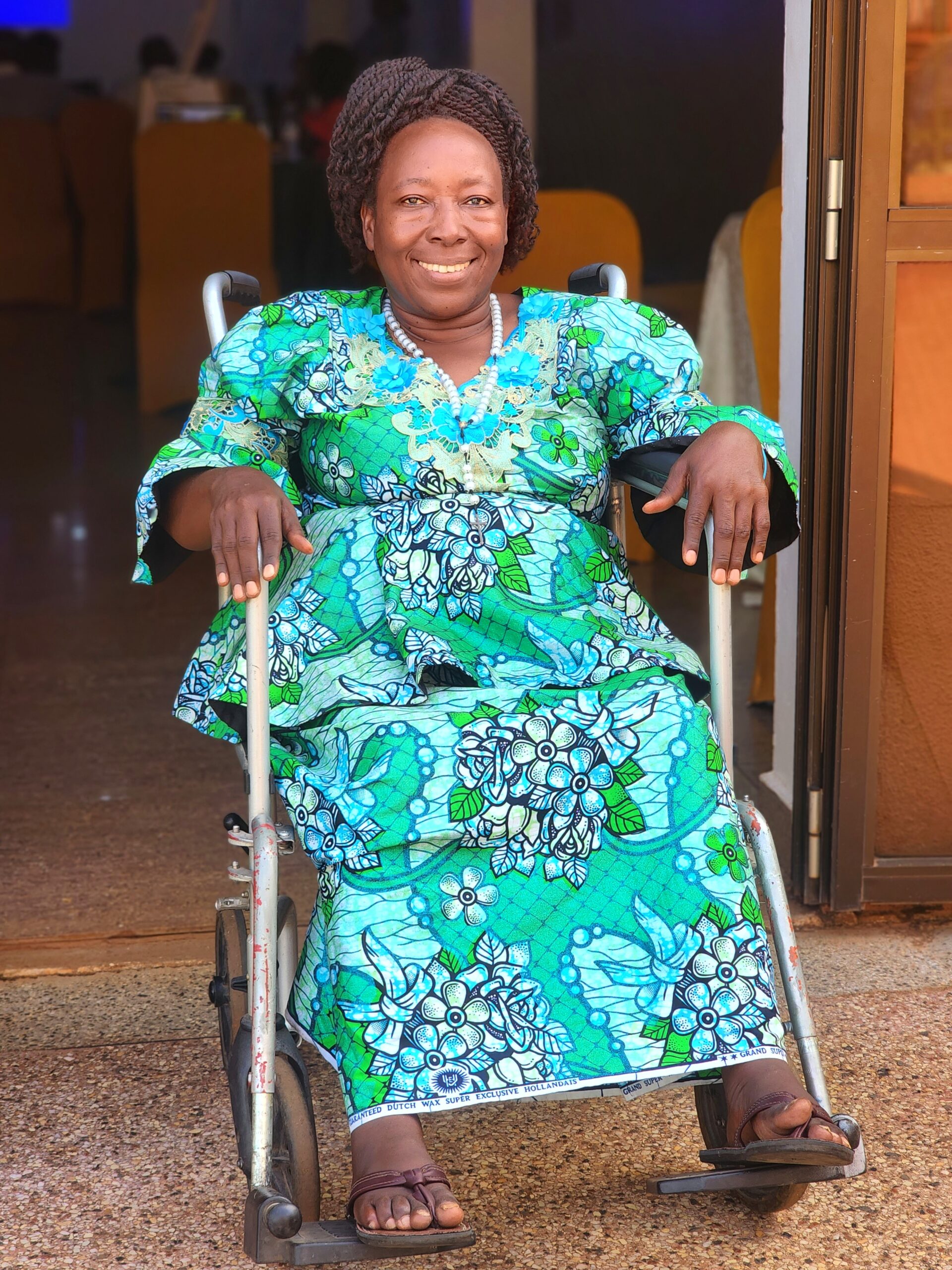
Juliet is the Executive Director of Bwera United Women with Disabilities Association, a community-based organisation in Kasese district in Western Uganda. It was formulated by women activists in Kasese to advocate for the rights of girls and women with disabilities and support them with entrepreneurial and vocational skills like tailoring, weaving baskets, hair dressing, liquid soap making, art and craft.
“With this grant, we want to do community awareness programs about disability through dance and drama. We also want to do accessibility audits because most public places like banks, schools, and hospitals within Kasese are not accessible for persons with disabilities.”
“We are very excited and grateful to receive the grant. One day, I visited the office of the Town Clerk, who gave me a newspaper to read, and that’s how I came across the advertisement calling for grant applications and we applied for it. We went through the grant making process and after some time, we got informed that we had gotten the grant.”
“The application process was simple and did not have many conditions, so it was easy for us to pick interest in applying. We have come across grants where conditions are very many and difficult and in most cases, they don’t favor small organisations like ours especially at grassroots level.”
“We have started implementing some activities and we can now reach more communities as opposed to before where our reach was not that big because of limited funds.”
“We have hope to change the negative mindset the community has towards women and girls with disabilities. Seeing women and girls lead this project will build more confidence in the community that if persons with disabilities are given an opportunity, they can have a positive impact in society.”
“There’s a big challenge of negative attitude towards persons with disabilities in Kasese. We want to change this.”
FIND OUT MORE

DISABILITY JUSTICE FUND FOR WOMEN
Learn more about the fund, how it was designed, and how the grant decisions were made.


